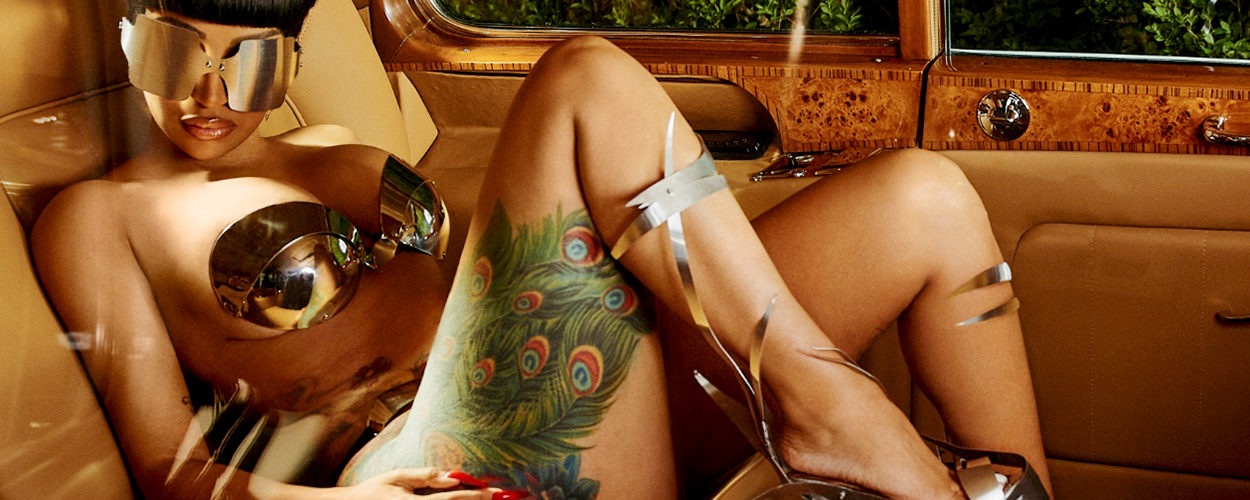This website uses cookies so that we can provide you with the best user experience possible. Cookie information is stored in your browser and performs functions such as recognising you when you return to our website and helping our team to understand which sections of the website you find most interesting and useful.
Artist News Business News Labels & Publishers Legal
Dispute over tattoo image in Cardi B mixtape cover arrives in court
By Chris Cooke | Published on Wednesday 19 October 2022

Kevin Brophy, the man whose distinctive tattoo features on the cover of Cardi B’s 2016 mixtape ‘Gangsta Bitch Music Vol 1’, yesterday told a US court that the artwork had left him “distressed” and “ashamed”. He is also “anxious” that his two children will one day see the image – which features a man positioned to look like he is performing oral sex on the rapper, with Brophy’s tattoo Photoshopped onto his back.
In his lawsuit, filed back in 2017, Brophy claimed that, because his tattoo is very unique, people assume it is him in the photo. And given the explicit nature of the artwork, that has resulted in him facing frequent “uncomfortable comments, questions, and ridicule from community members and family”. In legal terms, he claims Cardi B and her team infringed his so called publicity rights by using his image without permission.
The dispute has finally reach the trial stage. According to Law360, during the first day of the proceedings, Brophy’s legal rep argued that, not only did Cardi B – real name Belcalis Almánzar – use the tattoo photo without permission, but she repeatedly ignored cease and desist requests and demands from his client once he became aware of the artwork.
Attorney Barry Cappello added that Almánzar and her manager Klenord ‘Shaft’ Raphael specifically chose the image of Brophy’s tattoo because it fit the image she was trying to build as “a gangsta from the hood”. To that end an alternative tattoo image was rejected because it was too “cartoonish” and amateur-looking.
But the image of Brophy’s tattoo “wasn’t hers to take”, the lawyer said. “It’s the personal property and identity of a private citizen, not another celebrity. I don’t care who you are, whether you’re Cardi B, Shaft, or the President of the United States, you can’t take somebody else’s image and do something offensive with it”.
Brophy himself spoke later in the day, talking about the distress and shame the artwork has caused him, adding that he had previously been proud of his tattoo, but that its use on ‘Gangsta Bitch Music Vol 1’ had changed everything. He told jurors that it felt “like my Michelangelo was ripped off [the wall], robbed and put wherever these people wanted to put it”.
The key legal argument in the dispute relates to the fact the tattoo image was heavily altered when it was Photoshopped into the artwork and that – Almánzar’s team argues – makes it so called fair and transformative use, which is allowed by US free speech laws.
Though in opening statements, Almánzar’s lawyer also argued that his client was not actively involved in the design of the artwork or the release of the record.
He also questioned whether anyone really had independently identified that Brophy’s tattoo had been incorporated into the image. Or whether, in fact, it was only when Brophy decided to go legal and speak publicly about his dispute with the rapper that people made the connection and started commenting on the artwork.
The case continues.





